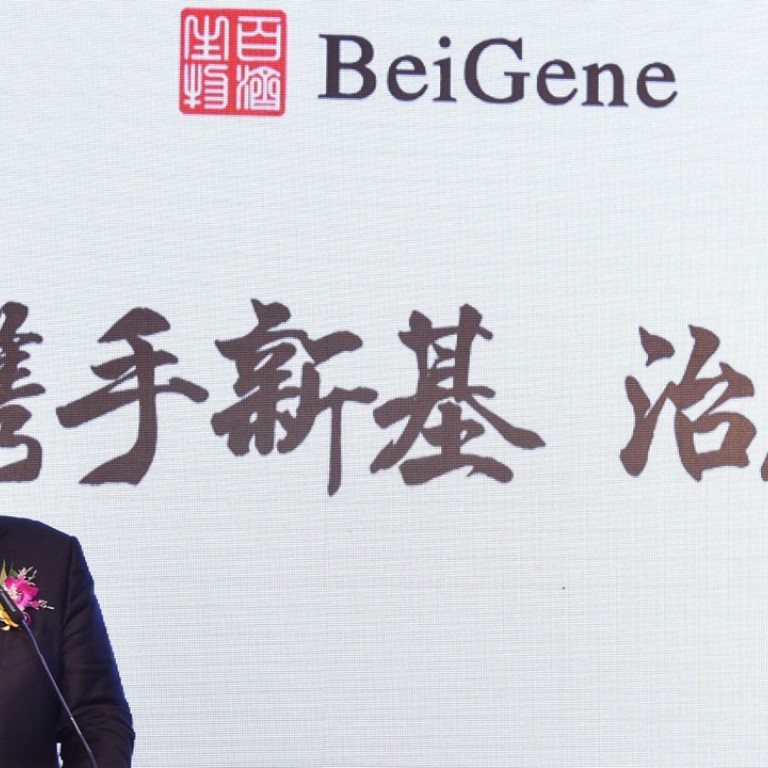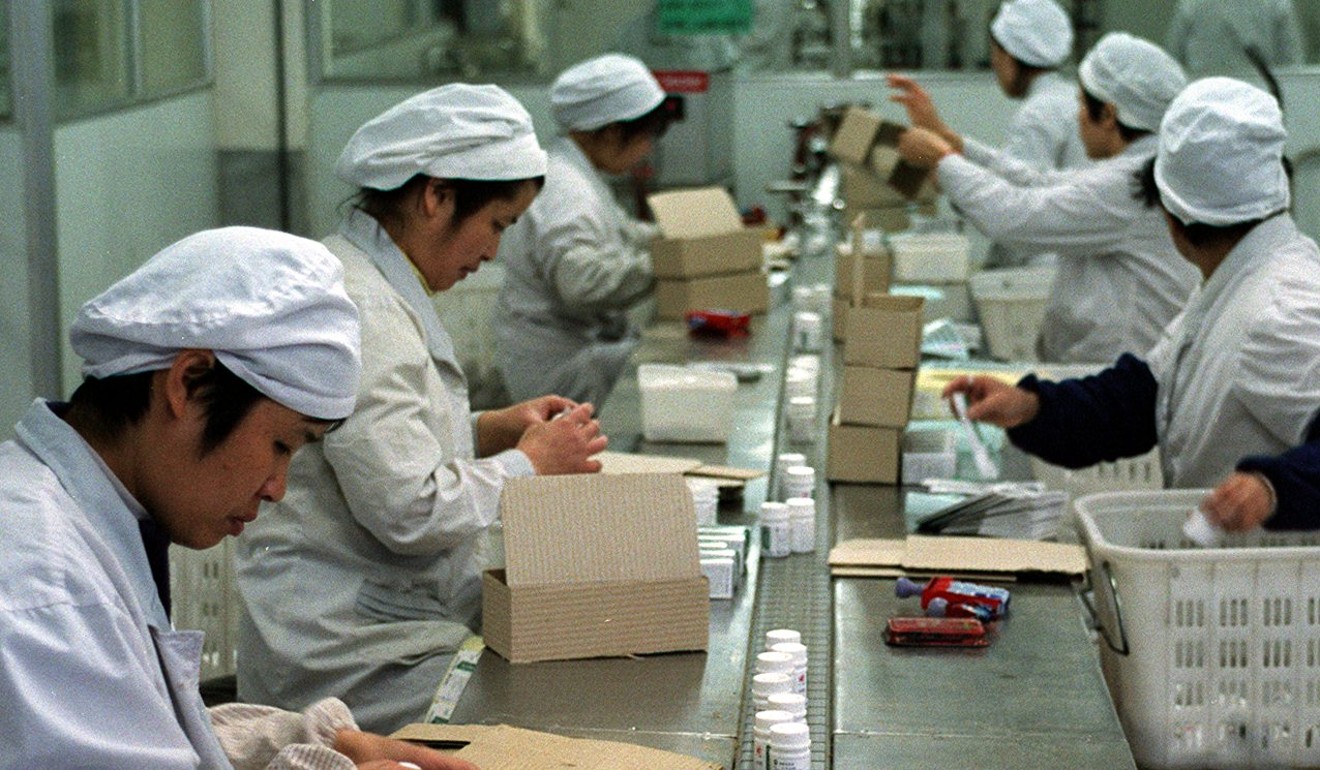
New | Cancer treatment start-up BeiGene opens first manufacturing plant, in Suzhou
With two major international industry endorsements already in the bag, after just five years in existence, firm says while remaining committed to having China as its core manufacturing base it is also open to building facilities overseas
BeiGene, the Beijing-based biopharmaceutical start-up, has completed the building of its first own manufacturing plant in the city – a key step in the Nasdaq-listed company’s transformation from clinical-stage developer to commercial maker of cancer medicines.
The new facility in Suzhou Industrial Park, in Jiangsu province, cost 200 million yuan (US$30.2 million) which will help the company to feature capabilities in the whole value chain – discovery, development, industrialised production and sales – of molecularly targeted and immuno-oncology drugs for cancer treatment. It has taken two years to build.
“This marks a key milestone for a journey [for us] as a commercial company,” said John V. Oyler, co-founder and chief executive of BeiGene on Wednesday.
This marks a key milestone for a journey [for us] as a commercial company
The factory is already capable of industrial production of two small molecule drug candidates that the Wall Street darling is developing.
One is “BGB-3111” for the treatment of a variety of lymphomas, the most common form of blood cancer. The other is “BGB-290”, which can be used for the treatment of a number of conditions, including breast cancer.
The five-storey site will also support the supply of antibody medicine for clinical-stage application in the future.
BeiGene listed on Nasdaq in 2016 and now has a market cap of around US$3.7 billion. The cancer biology platform has so far developed four clinical-stage therapies.
More than 1,400 patients and healthy adults had enrolled across the four programmes, involved in a combination trials, by the end of July, according to its website.

BeiGene ramped up its development progress in March by teaming up with Guangzhou Development District and its affiliate to build a large, commercial-scale biologics manufacturing facility in Guangzhou in Guangdong province costing 2.2-billion yuan.
Oyler said while remaining committed to having China as its core manufacturing base, is also open to building plants overseas.
Started only in 2010, BeiGene’s rapid development is evidenced by licencing deals with pharmaceutical giants worth billions of dollars.
Earlier this year, BeiGene closed a US$1.39 billion deal with American biotechnology giant Celgene, marking the biggest overseas licensing of drugs developed in China to date.
Celgene will receive exclusive rights to commercialise BeiGene’s immuno-oncology therapy, “BGB-A317”, in the United States, Europe, Japan and the rest of the world outside Asia.
The deal marks was BeiGene’s second major endorsement, after signed a global partnership with Merck Serono, the biopharmaceutical division of Merck, in 2013.

